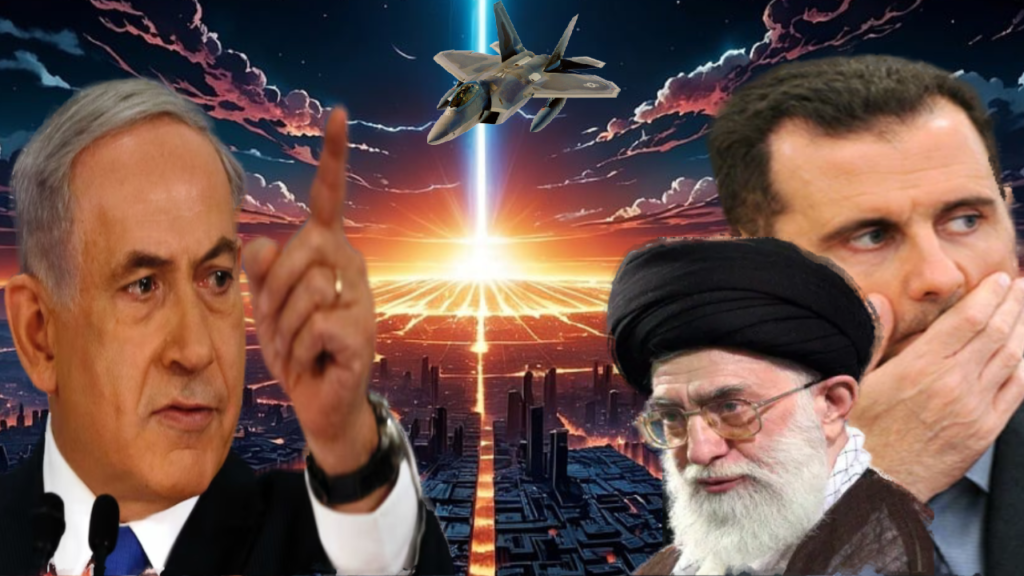A suspected Israeli strike on the Iranian embassy in Damascus, that killed 2 IRGC commanders has pushed the Middle East on the edge of full-scale war. Israel warned Iran that if it were to attack Israel from its own soil, Israel would retaliate by targeting Iran’s nuclear facilities.
Iran does attack Israel from its own soil with drones and missiles. IDF chief in a video message said, “Iran will face consequences.” Now the ball is in Israel’s court, will Israel attack Iran’s nuclear facilities, if that happens then the Middle East is at war.
In this blog, we will not delve into the possibility of Israel’s attack on Iran’s nuclear facilities or whether will it lead to a full-fledged war, but we will discuss does Israel has the capabilities to strike the nuclear facility or, whether has it conducted such an operation in the past.
The answer to these questions is YES, Israel conducted one of the most covert operations in the history of the military, “OPERATION ORCHARD.” This operation changed the geopolitical dynamics of the Middle East and showcased Israel’s commitment to preventing its adversaries from acquiring nuclear capabilities.
FLASHBACK
In the early 2000s, intelligence agencies began monitoring suspicious activities in the eastern desert of Syria. Satellite images revealed the construction of a facility that bore all the hallmarks of a nuclear reactor. Concerns escalated when evidence suggested North Korean involvement in the project, indicating a potential clandestine nuclear program orchestrated by the Syrian regime.
For Israel, the prospect of a hostile neighbour acquiring nuclear weapons was unacceptable. With memories of the Gulf War and Saddam Hussein’s pursuit of nuclear capabilities still fresh, Israeli leaders viewed the Syrian reactor as an existential threat that needed to be neutralized.

role of mossad
Mossad is Israel’s national intelligence agency, responsible for intelligence gathering, covert operations, and counterterrorism. Founded in 1949, Mossad operates under the Prime Minister’s Office and is renowned for its efficiency, resourcefulness, and daring operations worldwide. It has a reputation for employing innovative tactics and cutting-edge technology to achieve its objectives, making it one of the most formidable intelligence agencies globally. Mossad’s primary focus includes counterterrorism, counterintelligence, and covert operations aimed at safeguarding Israel’s security and interests.
Mossad played a crucial role in gathering intelligence about the facility, which was believed to be part of Syria’s clandestine nuclear weapons program. Mossad operatives reportedly infiltrated Syria to gather evidence and monitor the progress of the nuclear reactor’s construction. The operation involved meticulous planning and coordination with the Israeli military to execute a precise airstrike that destroyed the facility, effectively disrupting Syria’s nuclear ambitions. Operation Orchard demonstrated Mossad’s capability to gather intelligence on sensitive targets and execute high-risk operations with precision, underscoring its role as a key player in safeguarding Israel’s security

execution
On September 6, 2007, Israeli jets, including F-15s and F-16s, took off from various airbases across Israel. Flying low to avoid detection, they traversed hostile airspace and approached their target in Syria’s Deir ez-Zor region. The operation was meticulously choreographed to minimize the risk of detection and interception.
At precisely 1:30 AM local time, the Israeli jets unleashed a barrage of precision-guided munitions on the Syrian reactor. In a matter of minutes, the facility was reduced to rubble, effectively destroying Syria’s nuclear ambitions in one swift stroke.
consequences of operation orchard
The aftermath of Operation Orchard reverberated across the Middle East and beyond. While Israel maintained a policy of ambiguity regarding its involvement in the strike, the international community was quick to speculate about the perpetrator. Syria vehemently denied any nuclear ambitions and downplayed the significance of the attack, but the evidence was irrefutable.
The strike underscored Israel’s determination to safeguard its security at all costs and served as a warning to its adversaries. It also highlighted the importance of preemptive action in thwarting nuclear proliferation in volatile regions.
However, Operation Orchard also raised ethical questions about preemptive military strikes and the implications of unilateral action in international affairs. Critics argued that the strike violated Syrian sovereignty and risked escalating tensions in an already volatile region.
Operation Orchard remains a testament to the ingenuity, precision, and resolve of the Israeli military. It showcased Israel’s willingness to take decisive action to protect its national security interests, even in the face of significant risks.
Moreover, the operation demonstrated the efficacy of intelligence-led military interventions in countering emerging threats, particularly in the realm of nuclear proliferation.
As the world grapples with ongoing geopolitical challenges and the specter of nuclear proliferation looms large, Operation Orchard serves as a stark reminder of the complex realities of conflict resolution and the enduring quest for stability in the Middle East and beyond.



